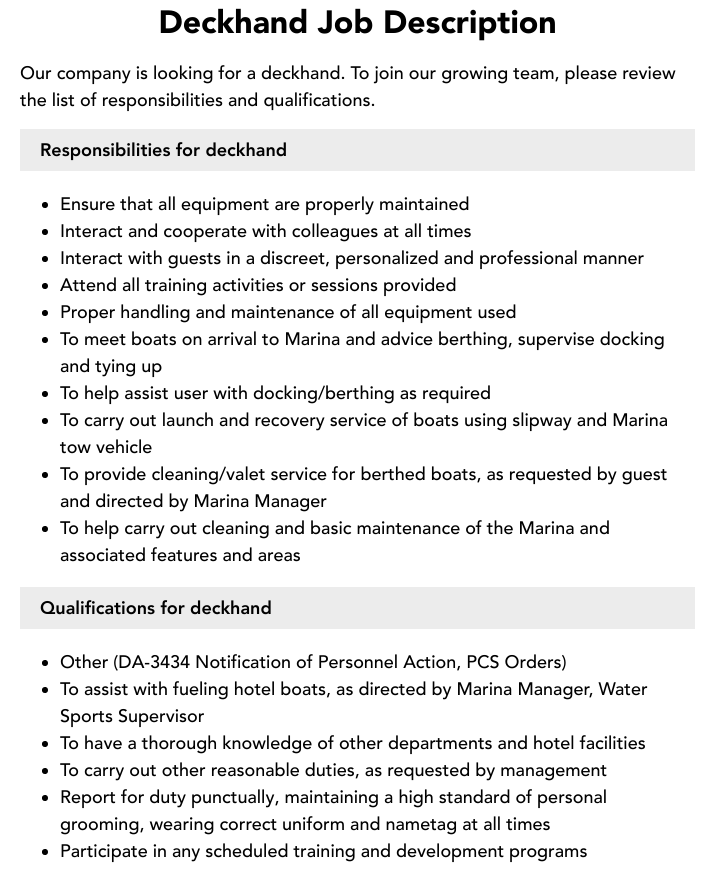
A superintendent job description outlines the roles, responsibilities, and qualifications for individuals managing and overseeing various operations within organizations, typically in sectors like education, healthcare, construction, and property management.
The job description serves as a vital tool for organizations to attract, hire, and retain qualified superintendents who can effectively lead and manage their respective domains. It ensures clarity of expectations, streamlines the hiring process, and helps organizations maintain high standards of performance.
Within the education sector, superintendents play a critical role in shaping the academic experience of students. They are responsible for managing the overall operations of schools or school districts, including curriculum development, teacher recruitment, and budget allocation. In healthcare settings, superintendents oversee the provision of medical services, ensuring the delivery of quality care to patients. In construction, they manage project timelines, budgets, and safety protocols, while in property management, they oversee the maintenance and upkeep of residential or commercial properties.
1. Leadership
Within the context of a superintendent job description, leadership is a critical component that encompasses the superintendent’s role in providing strategic direction and guidance to their organization. Superintendents are responsible for setting the vision, mission, and goals of their organization, and for creating a culture that supports and encourages innovation and excellence. They must be able to think strategically and make sound decisions that will benefit the organization in the long term.
Effective leadership is essential for the success of any organization, and this is especially true in the education sector. Superintendents play a vital role in shaping the educational experience of students, and they must be able to provide the leadership and vision necessary to ensure that all students have access to a high-quality education.
There are many different styles of leadership, and the best style for a superintendent will vary depending on the organization and the specific needs of the community. However, there are some key qualities that all effective superintendents share. These qualities include:
- A clear vision for the organization
- The ability to communicate that vision to others
- The ability to motivate and inspire others
- The ability to make tough decisions
- The ability to build relationships with stakeholders
Superintendents who possess these qualities are more likely to be successful in leading their organizations to achieve their goals.
2. Management
Within the context of a superintendent job description, management is a critical component that encompasses the superintendent’s role in overseeing the day-to-day operations of their organization. Superintendents are responsible for ensuring that their organization runs smoothly and efficiently, and that services are delivered in a way that meets the needs of the community. This includes managing the organization’s budget, hiring and supervising staff, and developing and implementing policies and procedures.
Effective management is essential for the success of any organization, and this is especially true in the education sector. Superintendents play a vital role in ensuring that students have access to a high-quality education, and they must be able to manage their organizations effectively in order to achieve this goal.
There are many different aspects to management, and the specific responsibilities of a superintendent will vary depending on the size and complexity of their organization. However, there are some key management tasks that all superintendents must be able to perform effectively. These tasks include:
- Planning and organizing the work of the organization
- Developing and implementing policies and procedures
- Hiring, supervising, and evaluating staff
- Managing the organization’s budget
- Communicating with stakeholders
Superintendents who are able to perform these tasks effectively are more likely to be successful in leading their organizations to achieve their goals.
3. Communication
Effective communication is a vital part of any superintendent job description. Superintendents must be able to clearly and concisely communicate their vision and goals to a variety of audiences, including employees, students, parents, and the community. They must also be able to listen attentively to the concerns of stakeholders and respond appropriately.
- Clarity and Concision: Superintendents must be able to communicate their ideas in a clear and concise manner. They should avoid using jargon or technical language that may be difficult for others to understand. They should also be able to tailor their communication to the specific audience they are addressing.
- Active Listening: Superintendents must be able to listen attentively to the concerns of stakeholders. They should show that they are interested in what others have to say and that they are willing to consider their perspectives. They should also be able to ask clarifying questions to ensure that they understand the concerns of stakeholders.
- Responsiveness: Superintendents must be responsive to the concerns of stakeholders. They should make themselves available to meet with stakeholders and discuss their concerns. They should also be willing to take action to address the concerns of stakeholders.
- Transparency: Superintendents must be transparent in their communication with stakeholders. They should be open and honest about the challenges and successes of the organization. They should also be willing to share information with stakeholders, even if it is not always positive.
Superintendents who are able to communicate effectively are more likely to be successful in leading their organizations to achieve their goals. They will be able to build strong relationships with stakeholders and create a positive and productive work environment.
4. Decision-making
Decision-making is a critical component of a superintendent job description. Superintendents are responsible for making critical decisions that impact the organization’s mission, goals, and objectives. These decisions can have a significant impact on the lives of students, staff, and the community. Therefore, it is essential that superintendents are able to make decisions that are informed, ethical, and in the best interests of the organization.
There are many different types of decisions that superintendents must make, including decisions about curriculum, staffing, budgeting, and facilities. Superintendents must be able to gather information, weigh the pros and cons of different options, and make decisions that are in the best interests of the organization. They must also be able to communicate their decisions clearly and concisely to stakeholders.
Superintendents who are able to make effective decisions are more likely to be successful in leading their organizations to achieve their goals. They will be able to create a positive and productive work environment, and they will be able to build strong relationships with stakeholders.
FAQs on Superintendent Job Description
This section addresses frequently asked questions regarding superintendent job descriptions, providing clear and informative answers to common concerns or misconceptions.
Question 1: What are the primary responsibilities of a superintendent?
Answer: Superintendents oversee the overall operations of their organizations, including strategic planning, financial management, personnel management, and curriculum development. They are responsible for ensuring that their organizations run smoothly and efficiently, and that services are delivered in a way that meets the needs of the community.
Question 2: What qualifications are typically required for a superintendent position?
Answer: Superintendents typically have a master’s or doctorate degree in education, as well as several years of experience in educational leadership. They must also possess strong leadership, management, and communication skills.
Question 3: What are the key qualities of an effective superintendent?
Answer: Effective superintendents are visionary leaders who can inspire and motivate others. They are also skilled communicators who can build strong relationships with stakeholders. Additionally, they are effective decision-makers who can make tough choices in the best interests of their organizations.
Question 4: What are the challenges facing superintendents today?
Answer: Superintendents face a number of challenges today, including budget cuts, increasing student diversity, and the need to improve student achievement. They must also be able to navigate the complex political landscape of education.
Question 5: What is the future of the superintendent role?
Answer: The future of the superintendent role is bright. As the education landscape continues to change, superintendents will play an increasingly important role in shaping the future of education.
Question 6: How can I become a superintendent?
Answer: To become a superintendent, you typically need to have a master’s or doctorate degree in education, as well as several years of experience in educational leadership. You should also develop strong leadership, management, and communication skills.
Summary of key takeaways or final thought:
The role of the superintendent is a challenging but rewarding one. Superintendents play a vital role in shaping the future of education. If you are interested in a career in educational leadership, then a superintendent position may be the right choice for you.
Transition to the next article section:
For more information on superintendent job descriptions, please visit the following resources:
- Superintendent Job Description Resource Center
- Edutopia: The Superintendent’s Job Description
- ASCD: What Makes an Effective Superintendent
Tips for Writing a Superintendent Job Description
A well-written superintendent job description is essential for attracting and hiring the best candidates for your organization. Here are five tips to help you write a job description that is clear, concise, and informative:
1. Start with a strong introduction.
The introduction should provide a brief overview of the superintendent’s role and responsibilities. It should also state the organization’s mission, vision, and values.
2. Be clear about the superintendent’s duties and responsibilities.
The duties and responsibilities section should provide a detailed list of the superintendent’s expected job functions. These functions may include:
- Providing leadership and direction to the organization
- Managing the organization’s budget and finances
- Hiring and supervising staff
- Developing and implementing policies and procedures
- Representing the organization to the community
3. Specify the superintendent’s qualifications.
The qualifications section should list the minimum qualifications required for the position. These qualifications may include:
- A master’s or doctorate degree in education
- Several years of experience in educational leadership
- Strong leadership and management skills
- Excellent communication and interpersonal skills
4. Use clear and concise language.
The job description should be written in clear and concise language. Avoid using jargon or technical terms that may be difficult for candidates to understand.
5. Proofread carefully before posting.
Once you have finished writing the job description, proofread it carefully for any errors in grammar or spelling. You should also have someone else review the job description to ensure that it is clear and informative.
Summary of key takeaways or benefits
By following these tips, you can write a superintendent job description that will attract and hire the best candidates for your organization.
Transition to the article’s conclusion
A well-written superintendent job description is an essential tool for attracting and hiring the best candidates for your organization. By following the tips above, you can write a job description that is clear, concise, and informative.



